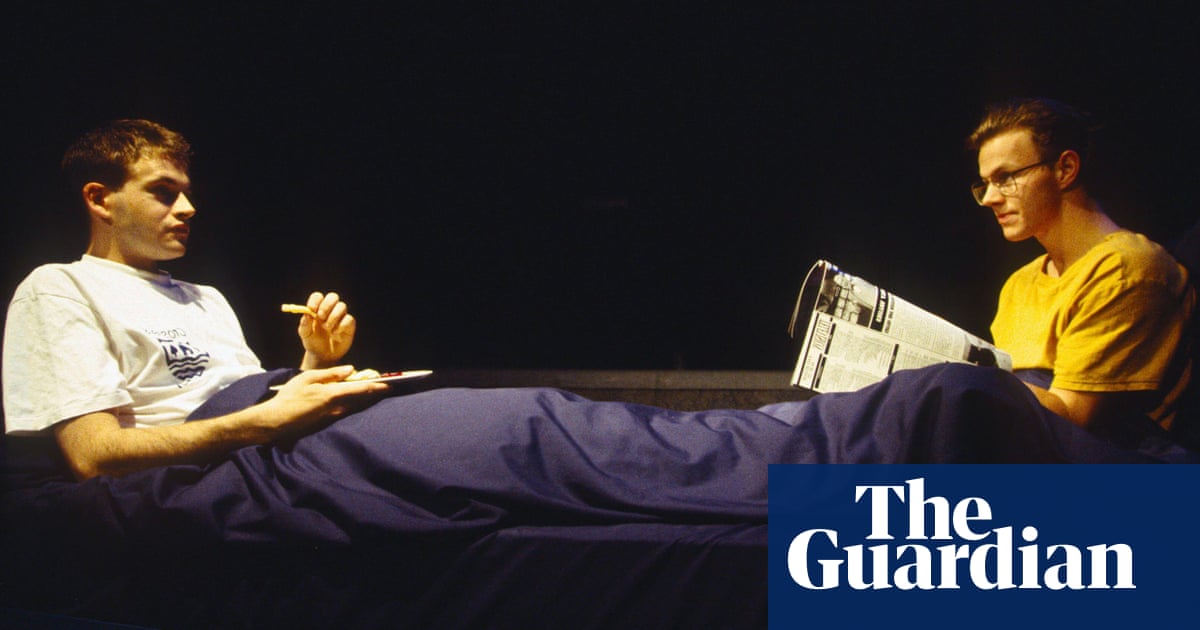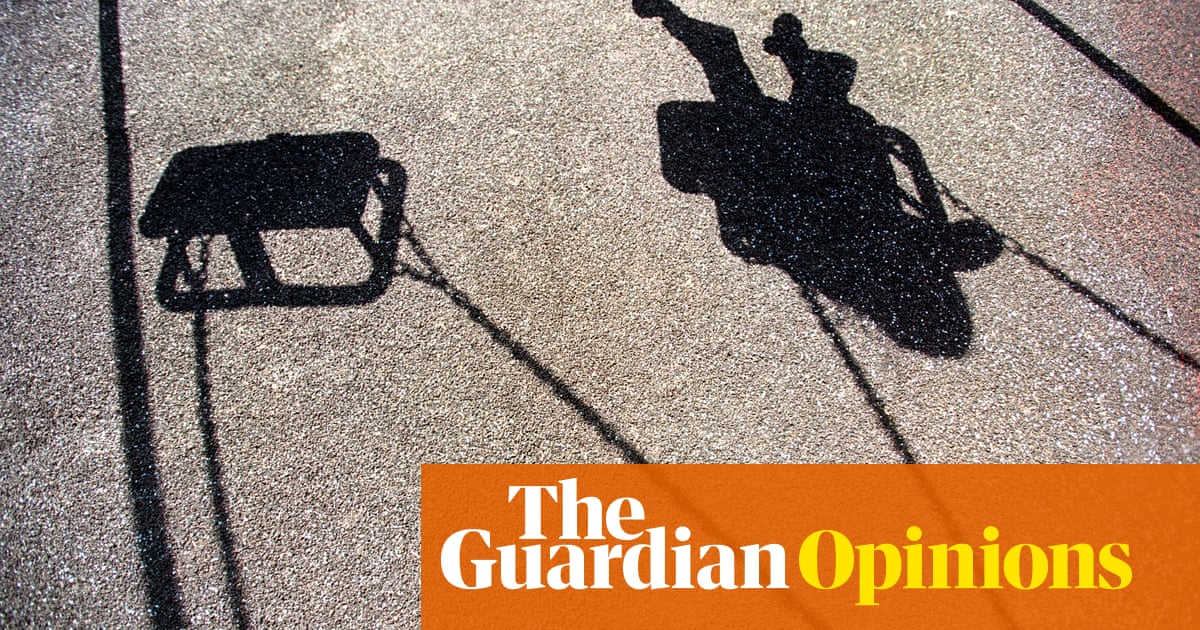
Jonathan Harvey, playwright
I wrote Beautiful Thing quickly in the summer of 1992. It came from the heart. The age of consent debate was going on – back then, gay men had to be 21 to have sex. The rhetoric used in parliament was so archaic, with words like “buggery” and “sodomy”. I wanted to write a play about two boys falling in love, and give it a happy ending. During the Aids crisis, it was unusual for a gay character to still be alive at the end of a drama. Class was important, too. Gay characters in Merchant Ivory films went punting, but if you were working class on screen, you would end up becoming a rent boy and selling your arse for 20 Woodbine cigarettes. My own experience, however, was that tolerance and acceptance were not just the privilege of the upper and middle classes.
I’d already had some plays staged but was still teaching, working near the Thamesmead estate in London where the play is set. My agent had just got rid of me, saying I wasn’t taking my writing seriously. That gave me a kick up the arse. I spent the first two weeks of the summer holidays writing Beautiful Thing in longhand, the second two typing it up and the last fortnight sending it out. By the end of the summer, I had a new agent – Alan Radcliffe, the father of Daniel, who played Harry Potter. I left my teaching job at Christmas.
All the new writing venues turned the play down, except the Bush in London. Dominic Dromgoole, who ran the theatre, told me: “It’s a really weird ending.” I said: “What, the dance?” He said: “What dance?” It turned out the agent’s assistant had sent it out to everybody with the last 40 pages missing. Dominic said: “I thought you were just being elliptical.”
They got Hettie Macdonald in as director, which was important because it needed some fine-tuning. It was on stage by the end of July 1993. People said we had the graveyard slot – all the reviewers were up in Edinburgh – but it sold out. The Bush was this tiny space above a pub: it seated 80 and was quite claustrophobic. But the play is about people living on top of each other, so when the two boys, Jamie and Ste, were in bed talking, you really felt as if you were in there with them.
I had a feeling it was good, but to see the rapturous response was like drinking your first glass of champagne: it was effervescent. Philip Glenister was laugh-out-loud funny as Tony, the boyfriend of Jamie’s mum Sandra, played by Patricia Kerrigan. Patricia was scary but warm and full of heart. I had a panic the night my mum came to see it. She is nothing like Sandra but there are conversations I had with her that are in the play. After she saw the film version, she said: “Please don’t stop writing about the little people.” That really moved me. The play helped me find my theatrical voice. It was the first time I had been honest in my writing and it gave me the confidence to keep going.
Philip Glenister, actor
I was three years out of drama school and Beautiful Thing was my first proper London theatre job. I was living near Jonny Lee Miller, who played Ste, the classmate Jamie falls in love with. He was sharing a flat with Jude Law and they would come round to mine for a drink after the show and we’d put the world to rights. Obviously the play is about two boys falling in love but it didn’t feel risky, just funny and very moving. The use of the Mamas and the Papas’ music was great: It’s Getting Better and so on. There was a message there.
The theatre was packed from day one. A lot of gay men came to see it. I remember most of them wore very white T-shirts. You’d be on stage staring out at this Daz-white sea of brightness. The play was set in summer, and it was warm outside, those lovely long evenings. Everything seemed to click. It became the sort of show everyone wanted to see.
Jonathan had written Tony as a middle-class guy but I fancied him as more of a geezer. He thinks he’s all that when socially he is a bit awkward. He’s got a heart of gold, though. When they transferred to the Donmar Warehouse, I was busy doing a film so Hugh Bonneville was Tony, and he played him the complete opposite way to me, which worked great. Then Rhys Ifans had the role next. It’s like the part had a sort of Midas touch.
There is a line in it that is one of the great lines in theatre. Sophie Stanton used to deliver it perfectly each night as Leah, a neighbour. There would be a row between Jamie and his mum, then Leah would light a cigarette, leave a long pause and say: “Kids are cunts.” It brought the house down every time. To this day, I still quote it. It’s as good as any Shakespeare.
The 30th anniversary revival of Beautiful Thing is at Theatre Royal Stratford East, London, 8 September to 7 October, then touring.












